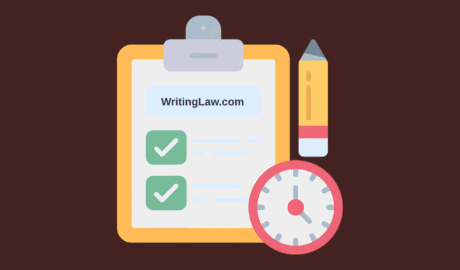
Whenever a person faces any problem or whenever any legal right of a person is hurt or is in danger, he moves towards the court. To make himself present in court, he seeks the help of an advocate. In short, advocates help people to secure and protect their rights. But what about the rights of an advocate? How are they protected?
In India, advocates are governed by the Advocates Act of 1961, which gives certain rights to the advocates. In this article, you are going to read about the rights that are available to Indian advocates.
Related Law Note: Balance Between Rights and Duties of Advocates Under the Advocates Act
Rights of an Advocate
The rights available to advocate can be comprehended from several legislations. They are:
1. Right to pre-audience.
The right or privilege of pre-audience is contained under section 23 of the Advocates Act, 1961. In a general sense, the right to be heard before another is heard can be termed as pre-audience. It is available as per the hierarchy system given below:
- Attorney General
- Solicitor General
- Additional Solicitor General
- Second Additional Solicitor General and the Advocate General of India
- Advocate General of any state
- Senior Advocates
- Other Advocates
The Attorney-General of India has the right of pre-audience over all other advocates. After he comes the Solicitor General of India, and then, Additional Solicitor General of India, and after he comes Advocate General, may it be of any state. Finally, after them, come senior advocates and other advocates.
As per this section, an advocate has a right to represent his client in court and can speak when he wants to speak before an audience present in the court. Also, an advocate cannot be stopped from speaking unless he violates or disregards the decency of the court.
2. Right to practice the profession.
Advocates are granted the privilege to practice their profession in two categories: general protection and specific protection.
General protection is contained under Article 19(1)(g) of the Constitution of India, which states that every person has a right to practice any profession or to maintain any occupation, trade or business.
The specific protection with regards right to practice to an advocate is given under section 30 of the Advocate Act, 1961. Accordingly, every advocate whose name is registered in the State roll has the right to practise in all the courts, any tribunal or before the person who has the power to take evidence, throughout the territories to which this Act applies.
3. Right to enter in any court.
Section 30 of the Advocates Act provides that every advocate has the right to practice in any court. Correspondingly, every advocate has the right to enter any court in any related matter. An advocate also has the power to enter the Supreme Court. He can even be present in any court to observe the proceedings, whether he has a case or not or whether he is connected to that case or not.
4. Right against arrest.
Right against arrest is contained under section 135 of the Civil Procedure Code. It states the condition under which an advocate cannot be arrested in any circumstance. As per the section mentioned, no advocate can be arrested under civil process if he is going to court, is presiding in court, or is returning from court.
5. Right to meet accused.
To understand any case in a better way or to properly know the act done by the accused, the meeting of the accused and the advocate is of much significance. Therefore, the privilege to meet the accused whenever and wherever he wants is entrusted to an advocate. The advocate can meet the accused even every day. The advocate also has the right to meet the accused, even in jail. However, the meeting in jail can be limited to some duration of time only.
6. Privileges to a lawyer under the Indian Evidence Act.
Section 129 of the Indian Evidence Act provides an exclusive right to the advocate, whereby he has the right to secure the privacy of the communications done between him and his client. As per this section, no one can be threatened to disclose any communication done between him and his legal advisor until and unless he proposes himself as a witness in a court of law.
Read Next:
1. Restrictions on Advocates to Take Up Other Employment
2. Legal Education in India: Its Need, Scope, and Role
3. B. Sunitha vs State of Telangana – Case Explained
- Powers of Income Tax Authorities in India - 29th November 2025
- Understanding the Legislative Branch of the Indian Government - 6th May 2024
- Appointment, Oath, and Removal of Constitutional Posts in India - 28th April 2024






